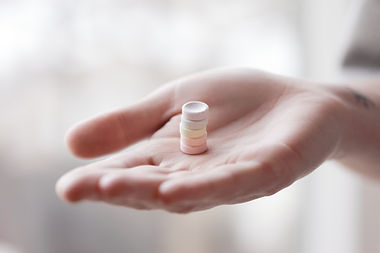GET HELP
If you ever think you may be dealing with depression or an anxiety disorder, alert a trusted adult or parent and make an appointment with your family physician or school counselor. Also, if school seems to be overwhelming you, be sure to notify the counselor and your parents.

“Healing takes time and asking for help is a courageous step.”
TYPES OF TREATMENT


Antidepressants
Many doctors may prescribe medication as a form of treatment. Antidepressants don't necessarily cure depression or anxiety, but they can help relieve symptoms by affecting different brain chemicals (neurotransmitters) such as serotonin, norepinephrine, and dopamine. They can take 2 to 6 weeks to work and can also have side effects, making it important to watch for these and talk to your doctor if you notice any.
33
Cognitive Behavioral Therapy
This is a popular form of talk therapy that has proved to be very effective. By talking with a psychotherapist, you will recognize negative thoughts and behavioral patterns in your life, which in turn help you create a new perception and way of thinking towards the situation; you will then become more readily equipped to cope and address the symptoms. CBT lies on the belief that unhealthy thoughts, perceptions, and actions fuel psychological issues and when combined with medication usually produce the best results.
22
